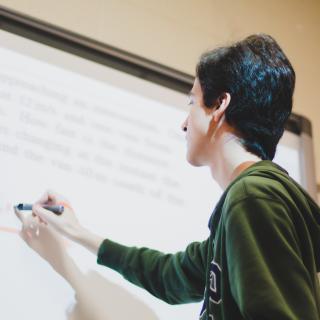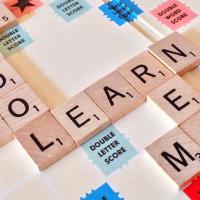Greece: Embracing change and technology in the “Open School” reform in elementary and secondary education

Speaking at public events and conferences, such as "Greece After" and "34th Greek Economic Summit: GES2023," the Hellenic Minister of Education, Religious Affairs, and Sports illustrated the changes required for the new Open School to effectively respond to the current era of change and accelerating technology by drawing a triangle. Algorithmic thinking, encompassing computer science and mathematics, is at one end of the triangle, while literary thinking, imagination, and the ability to present one's work are at the other end, with voluntary action marking the third angle.
The pillars of the new "Open School" transformation, to be implemented in the forthcoming four years, include multiple textbooks, mathematics, literature, new technologies, and vocational training. Understanding mathematics, promoting and revamping the school subject of literature and, also, introducing voluntary activities in the educational process are of great importance.
On this basis, the planned reform of elementary and secondary education, which is expected to be presented between March and April 2024, will, among other key aspects, make provision for:
-
Replacing a single course book with the "multiple book". The introduction of multiple textbooks, in addition to one book per subject, is already underway and will be in place in schools from 2025.
-
New Curricula: In line with the significant changes of the 166 curricula initiated in the recent past, changes will continue in several directions: from the introduction of the Artificial Intelligence course, to the idea that Literature should be taught in full books and not just in excerpts; to that Ancient Greek and Modern Languages can involve more innovative teaching methods, and there is also an emphasis on strengthening Arts Education.
-
Reinforcing the teaching of Literature by introducing at least two books per year for students to complete their reading and assignments during the year, in addition to a piecemeal approach to literary works
-
Emphasising school projects more intensively in primary and secondary education, promoting collective work in groups of students to cultivate critical thinking and team spirit.
-
Installing robotic labs and interactive whiteboards in all schools, with technology acting as a supplement rather than a dominant factor in the teaching of subjects. This dualism is necessary for literary thinking to sit alongside analytical thinking.
-
Developing a new programme of internationally recognised certificates in language and digital skills, including the opportunity for students to receive a certification in Computer Science upon completion of upper secondary education. The aim is to provide certification in IT at ISCED 3.
-
Career guidance in all schools and aptitude tests to identify the tendencies, aptitudes and skills of all students in all schools in the country, with emphasis on supporting the vocational orientation of students so that they are better prepared when making future education paths decisions.
-
Planning a new framework-law on technical and vocational education and training to put great emphasis on technical and vocational education, an intervention that seeks to be expressed through the joining of forces of existing vocational education and training structures, such as vocational schools, laboratory centres, etc., to create a local dimension and better links with local social and economic needs, as well as with the new realities created by information and technology in each sector.
More information:
-
https://www.esos.gr/arthra/85516/k-pierrakakis-trigono-gia-neo-anoikto-sholeio
-
https://www.esos.gr/sites/default/files/articles-2023/2023-07-08_omilia_kyr._pierrakaki_sti_voyli_programmatikes_diloseis_kyvernisis-2.pdf
https://www.esos.gr/arthra/83975/oi-25-exaggelies-toy-k-pierrakaki-gia-tin-paideia-apo-vima-tis-voylis -
https://www.esos.gr/arthra/85920/hronodiagramma-ton-nomothetikon-protovoylion-toy-ypoyrgoy-paideias
-
https://www.infokids.gr/ti-einai-to-neo-anoixto-sxoleio-pou-o/
-
https://www.edweek.gr/pos-fantazetai-to-neo-anoihto-sholeio-o-ypoyrgos-paideias-k-pierrakakis/
Source: Eurydice Unit Greece




